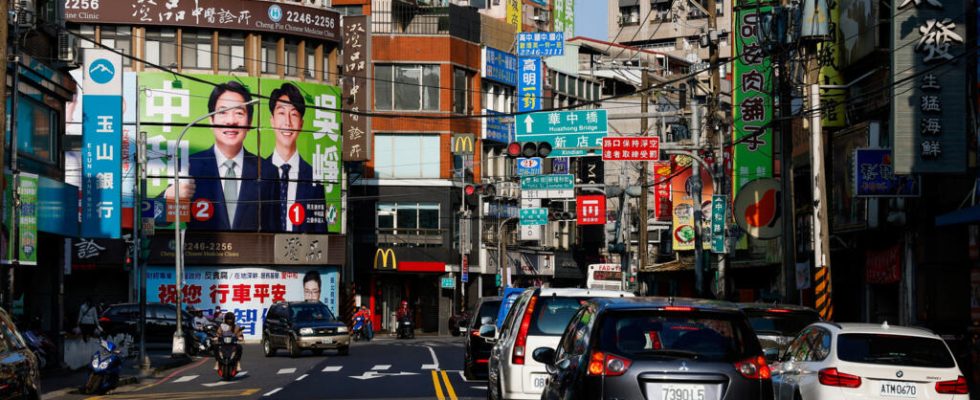Disinformation has become an increasingly important variable in elections. We see it in Taiwan, as we may fear in Europe or the United States this year.
This is an arch-classic piece of fake news that we have already seen at work during the elections in DRC about a candidate said to be “from abroad.” » This time, it is Hsiao Bi-khim, the running mate of candidate Lai Ching-te. She appears in several videos on TikTok as a foreigner, which would make her ineligible despite evidence that she abandoned American citizenship decades ago. This is just one example of this electoral disinformation behind which many Taiwanese see the hand of the China.
But what is worrying is also the use of generative artificial intelligence which can make the deepfakes, these videos where you can make a political leader say whatever you want by duplicating his voice and the movement of his lips. In a clear sign, in these reactive and misleading videos, it is the candidates of the Progressive Democratic Party, committed to the independence of the island, who are targeted.
Read alsoIn Taiwan, the presidential election closely scrutinized by China
Risk of seeing democracy distorted
And other elections are threatened by misinformation. According to the report on global risks published on the occasion of the Davos Forum, this would be one of the greatest risks facing humanity today. The risk is to see democracy distorted, perverted by fake news or post-truth ideas. It was enough for Joe Biden to announce his candidacy in April to see a surge of videos showing an invasion of Latino migrants, an increase in bankruptcies or an explosion in crime.
The quality of the diversions leads us to be more and more wary of the image. But there is also audio. In the newspaper The cross This week, Tristan Mendès France, a fake news expert, discusses the case of a false recording of Macron’s voice on a pseudo-secret plan to destabilize Mali. Despite the denial, something always remains, because in a regime deprived of free media, he says, the truth does not always come to the surface.
The alert on the risk of misinformation in the next European elections
The European elections in June will also be a test. The Commission has already warned of the risks of misinformation, as we saw in Slovakia. It now has a digital services law, which requires platforms to combat disinformation, hate speech and manipulation intended to distort the outcome of elections.
And then, as we do not see with the label “true or false”, what the French public media will develop, it is also a question of responding very quickly and more to the propagation of a falsehood on social networks and tomorrow – perhaps -be – to get the truth to be preferred to lies by algorithms.
